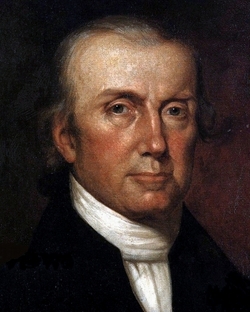A Quote by Lysander Spooner
Any government, that is its own judge of, and determines authoritatively for the people, what are its own powers over the people, is an absolute government of course. It has all the powers that it chooses to exercise. There is no other or at least no more accurate definition of a despotism than this.
Related Quotes
If the federal government has the exclusive right to judge the extent of its own powers, warned the Kentucky and Virginia resolutions' authors (James Madison and Thomas Jefferson, respectively), it will continue to grow - regardless of elections, the separation of powers, and other much-touted limits on government power.
The British government had not engaged in any serious actual oppression of the colonies before 1774, but it had claimed powers not granted by the governed, powers that made oppression possible, powers that it began to exercise in 1774 in response to colonial denial of them. The Revolution came about not to overthrow tyranny, but to prevent it.
I acknowledge, in the ordinary course of government, that the exposition of the laws and Constitution devolves upon the judicial. But I beg to know upon what principle it can be contended that any one department draws from the Constitution greater powers than another in marking out the limits of the powers of the several departments.
In these sentiments, sir, I agree to this Constitution, with all its faults, if they are such; because I think a General Government necessary for us, and there is no form of government, but what may be a blessing to the people if well administered; and believe further, that this is likely to be well administered for a course of years, and can only end in despotism, as other forms have done before it, when the people shall become so corrupted as to need despotic government, being incapable of any other.
Governments are instituted among men, deriving their just powers from the consent of the governed, that whenever any form of government becomes destructive of these ends, it is the right of the people to alter or abolish it, and to institute new government, laying its foundation on such principles, and organizing its powers in such form, as to them shall seem most likely to effect their safety and happiness.
A constitution, in the American sense of the word, is a written instrument by which the fundamental powers of the government are established, limited, and defined, and by which these powers are distributed among several departments, for their more safe and useful exercise, for the benefit of the body politic.
I, sir, have always conceived - I believe those who proposed the constitution conceived,and it is still more fully known, and more material to observe, those who ratified the constitution conceived, that this is not an indefinite government deriving its powers from the general terms prefixed to the specified powers - but, a limited government tied down to the specified powers, which explain and define the general terms.
For what is meant by saying that a government ought to educate the people? Why should they be educated? What is the education for? Clearly, to fit the people for social life - to make them good citizens. And who is to say what are good citizens? The government: there is no other judge. And who is to say how these good citizens may be made? The government: there is no other judge. Hence the proposition is convertible into this - a government ought to mold children into good citizens, using its own discretion in settling what a good citizen is and how the child may be molded into one.








































